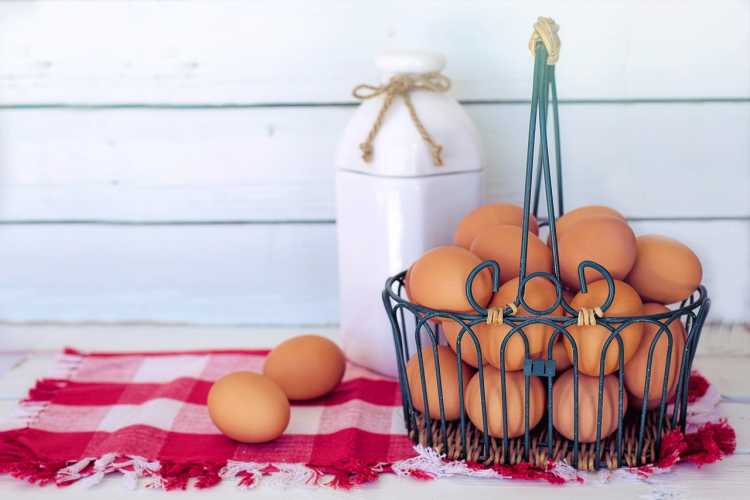If you have leftover fresh eggs, you may be wondering if you can freeze them. The answer is yes, but there are a few things to keep in mind. First, eggs must be frozen in their shells. And second, they will only stay fresh for about three months. Here’s everything you need to know about freezing fresh eggs.

Quick Answer
Yes, you can freeze fresh eggs. Freezing them will impact their taste and texture but they will still be safe to eat. They will last in the freezer for about 6 months.
When freezing eggs, it’s important to note that they will expand when frozen so you should use a container that is large enough to allow for expansion. Egg whites tend to freeze better than yolks so if you only need the whites, freeze them separately from the yolks. Be sure to label the container with the date that you froze them.
Can You Freeze Fresh Eggs?
Can you freeze fresh eggs? Yes, you can freeze fresh eggs, but the impact on taste and texture will depend on how you freeze them. If you freeze them whole, they will retain their shape but lose some of their flavor. If you crack them and beat the whites and yolks together, they will lose more flavor but will have a better texture. They will last in the freezer for about 3 months.
How To Freeze Fresh Eggs?
The great thing about eggs is that they last a long time when stored properly. But what do you do when you have a lot of eggs and don’t want them to go bad? You freeze them! Here are the steps to freezing fresh eggs:
1. Crack the eggs into a bowl and remove any pieces of shell.
2. Whisk the eggs until they’re well combined.
3. Pour the eggs into a quart-sized freezer bag.
4. Squeeze out as much air as possible and seal the bag tightly.
5. Label the bag with the date and contents.
6. Freeze the eggs for up to six months.
Precautions to Take When Freezing Fresh Eggs
When freezing fresh eggs, it is important to take some precautions to ensure that they freeze properly and that they are safe to eat later. Here are some steps you can take to prep your eggs for the freezer:
1. Break the eggs into a bowl and whisk them together until they are well combined.
2. Pour the eggs into a quart-sized Ziploc bag and press out all of the air.
3. Seal the bag securely and place it in the freezer.
4. When you are ready to use the frozen eggs, break them into a bowl and whisk them together until they are well combined.
5. Pour the eggs into a quart-sized Ziploc bag and press out all of the air.2 6 .Seal the bag securely and place it in the refrigerator until you are ready to use them.
How To Thaw Frozen Fresh Eggs
If you have frozen fresh eggs and want to thaw them for consumption now, there are a few steps you’ll need to follow. First, place the frozen eggs in a bowl of cool water. Let them thaw for about 15 minutes, then transfer them to the refrigerator. Once they’re in the fridge, let them sit for another hour or so until they’re completely thawed. When they’re ready, you can use them just like regular eggs – cook them up however you like!
How Long Does Fresh Eggs Last (Stays Fresh) Outside at Room Temperature?
Most fresh eggs will last for at least a week when stored at room temperature. If you keep them in the fridge, they will last for even longer – up to two weeks. However, if you notice that your eggs are starting to go bad (e.g. they develop a cracks or start to smell), it’s best to throw them out.
How Long Does Fresh Eggs Last (Stays Fresh) in the Fridge?
Most eggs have an expiration date of 3-5 weeks after the eggs are laid. This is because a hen’s production gradually declines over a 3-5 week period, so the older eggs are less likely to be viable. However, if you have refrigerated eggs that are beyond their expiration date, they are usually still safe to eat for up to 4-6 weeks after being laid as long as they were refrigerated immediately after purchase and have remained cold.
How To Use Up Extra/Leftover Fresh Eggs?
There are lots of ways to use up extra or leftover fresh eggs. Here are some ideas:
– Make scrambled eggs or an omelet.
– Fry up some eggs for a quick breakfast or snack.
– Bake a quiche, egg casserole, or frittata.
– Make an egg salad sandwich or wrap.
– Add boiled eggs to a salad or soup.
– Use cooked eggs as the topping for a pizza or pie.